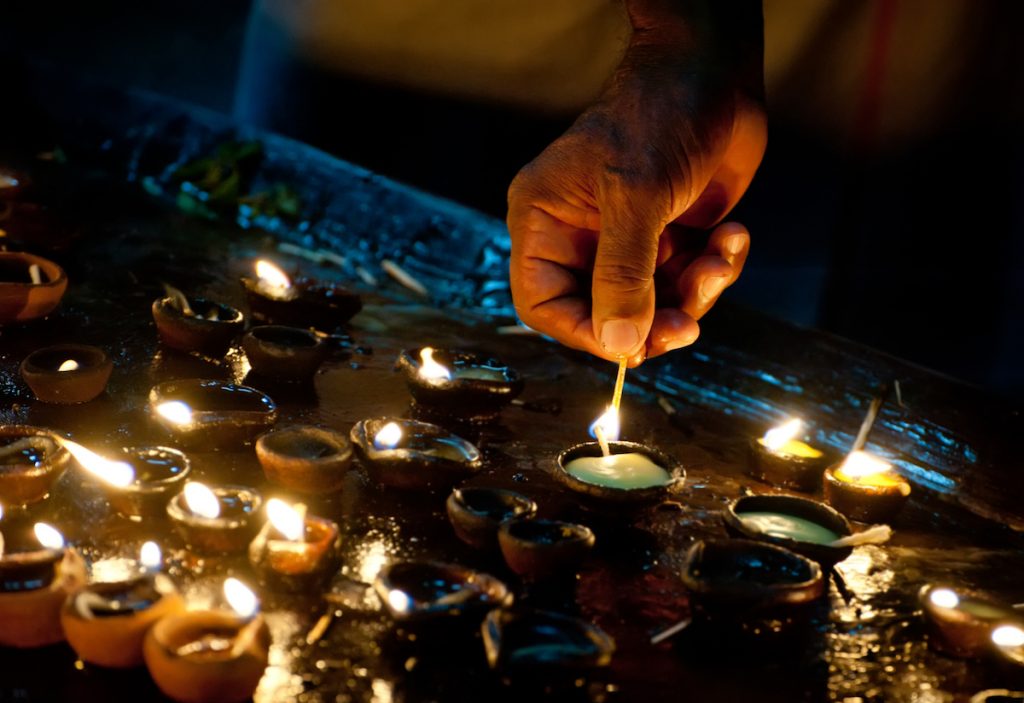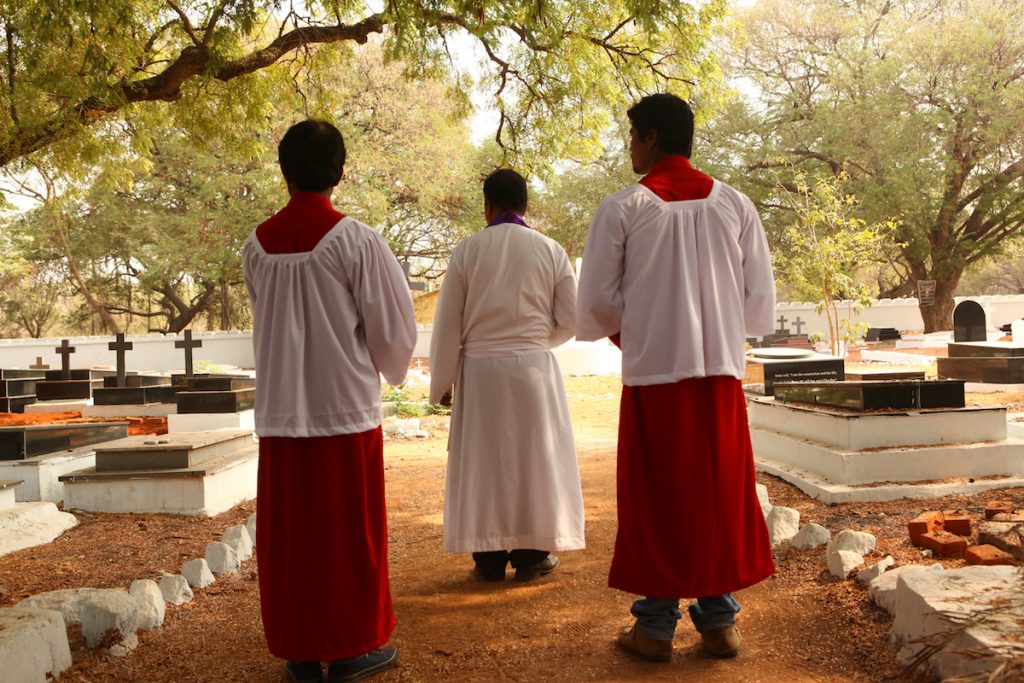India’s lockdown restrictions aimed at suppressing COVID-19 has led to some Muslim and Hindu clerics using live-streaming apps and video call services during funerals.
Imtiyaz Hussain’s father died last week but he told LiCAS.news that a Muslim cleric was unable to perform the last rites in person due to the restrictions.
Only Imtiyaz and several cousins could attend the funeral prayers offered at the family’s ancestral graveyard in the Indian capital of New Delhi.
The cleric recorded the prayers and sent it to Imtiyaz’s phone via Whatsapp which was then played near his father’s grave.
“I myself performed ‘jinaza’ (funeral prayers) but there are specific verses of the Holy Quran that need to be recited near the grave after the burial,” Imtiyaz said.
“I didn’t remember all of them and that is why I asked Molvi Sahib (the cleric) to record it and send it to me,” he said.
“We were only saying ‘amiin’ to every ‘dua’ (prayer) the cleric was reciting in the video. I hope God will forgive us for any mistakes committed during the process but times like these are indeed bizarre and unnatural,” he said.
“What else we could have done other than this?” he asked.
Moulana Junaid Bashir Ahmad, a senior Muslim cleric based in India’s northern region of Kashmir, told LiCAS.news that there is nothing binding in Islam that funeral prayers are to be recited by a cleric only.
“Anyone can recite them and in times like these, alternate methods being adopted for the process like video calling and live-streaming apps are the need of the hour,” Ahmad said. “They are not forbidden if they are being used for any good.”

Prem Nath, whose mother died on May 2, had her 10th-day ‘kirya’ (last rites) scheduled on May 12. With the lockdown in place, the Hindu ritual ‘puja’ couldn’t be performed for the deceased.
It was Prem’s college student son who came up with the idea of video calling a Hindu priest. “We called ‘Pandit Ji’ (Hindu priest) and asked him whether he can join us through video calling and perform the puja,” said Prem.
The family placed the picture of the deceased near a prayer mat which had marigold flowers on one side and mobile phone on the other.
With folded hands, and eyes closed, the family listened to the priest say hymns and chants through a video-calling app.
“We prayed for the departed soul and its ‘mukti’,” Prem said referring to the soul’s liberation from material consciousness. If the ritual isn’t performed, Hindus believe the soul will wander and be unable to enter ‘Swarg’ (Heaven).
“We pray to God that our prayers be accepted and gives peace to the departed soul of my grandmother,” said Ishaan, Prem’s son.
Ishaan said after the ritual was completed, the family transferred the money, known as ‘dikhsha,’ directly into the priest’s account and paid him in full.
“God sees the intention of our hearts and not the superficial actions. Our intention was to perform the rites in a true spirit and we did that no matter the hindrances we faced in the process,” he said.
But Catholic priests won’t be copying Muslim and Hindu clerics in using live-streaming apps and video call services for funerals during the lockdown.
New Delhi-based priest, Father Paul Moonjely said there are no digital funeral services for Catholics in the nation’s capital during the lockdown. Instead he said that priests had managed to ensure they could go to cemeteries for a burial to offer the deceased the last rites.
“The Church believes in life after death,” said Father Paul. “And therefore, the last rites are performed in the best possible manner. It is a journey to heaven and merits extreme caution. None of the Catholics have had any E-funerals,” Father Paul said using a term describing funeral services carried out using digital tools.
“We maintain social distancing and take all requisite precautions during the funeral. However, the physical presence for the last rites is inevitable,” Father Paul added.
According to Bishop Francis Serrao of Shimoga, in the state of the Karnataka, ‘E-funerals’ are not permitted in Christianity. For a sacrament one has to be physically present, he said. “We cannot give sacraments through online applications. We cannot use the media for Masses and say this is regular Mass or any service for that matter,” said Bishop Serrao.
However, the prelate says if the service is spiritual then it is permitted to the extent that the participants take part in it prayerfully and it is beneficial for their spiritual growth. “But it doesn’t become a sacrament,” he clarified.

Vajay Soni, a Catholic based in Mumbai, is hoping for the best when he had to resort to digital help so his terminally ill father could receive anointing rites in a government-run hospital.
“The priest couldn’t come to the hospital due to the restrictions. I patched him through a video call and through this medium, he performed the virtual anointing of my father,” Soni said.
“We hope that these prayers will have same acceptance before God as of the real prayers. One cannot think of any other way during times like these,” he said.
Jaswant Kumar, a New Delhi-based research scholar on comparative religions told LiCAS.news that an unbending approach many religions have needs to be somehow minimized in view of the present pandemic.
“Technology is fast evolving every day. Religious leaders have to become more accommodative in their approach and adopting new ways will make religion more approachable to the younger generation,” Kumar said. “Religiosity will not be lost through this but will thrive through pragmatism and fusion of faith and latest technology,” he said.
India’s federal government led by Prime Minister Narendra Modi imposed a countrywide lockdown as a preventive measure against the COVID-19 pandemic on March 24. It has limited the movement of the country’s 1.3 billion people and closed down many industries. The government has warned that anyone who fails to follow the restrictions could face up to a year in jail.
As of May 14, India has more than 78,000 confirmed cases of people infected by the new coronavirus which has killed more than 2,500 people in the country.






